A paper from Adam Woods, Teagasc, Grange, presented at the National Beef Conference in Cillin Hill, Kilkenny on 5th April 2011
- Date
- 5 April 2011
- Type
- Event Proceeding
A paper from Aidan Murray, Teagasc Beef Specialist, Grange, presented at the National Beef Conference in Cillin Hill, Kilkenny on 5th April 2011
- Date
- 5 April 2011
- Type
- Event Proceeding

A choice experiment approach to estimate the economic value of improvements in the ecology of Irish rivers - 5509
- Date
- 1 April 2011
- Type
- Technology Update
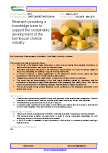
Research providing a knowledge base to support the sustainable development of the farmhouse cheese industry.
- Date
- 31 March 2011
- Type
- Technology Update
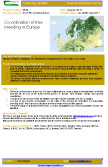
Co-ordination of tree breeding in Europe - 5519
- Date
- 31 March 2011
- Type
- Technology Update
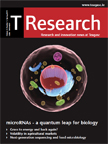
microRNAs - a quantum leap for biology Grass to energy and back again? Volatility in agricultural markets Next-generation sequencing and food microbiology
- Date
- 11 March 2011
- Type
- Magazine
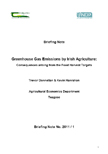
Over the next ten years an expansion in the value of Irish agriculture is projected to take place. However, the magnitude of the projected expansion is likely to be insufficient to ensure that the targets set in the Food Harvest report are achieved without the implementation of the actions recommended by the Food Harvest Committee in its Food Harvest 2020 Report.
- Date
- 11 February 2011
- Type
- Submission
Agricultural Education: Supporting Economic Recovery
- Date
- 10 February 2011
- Type
- Video
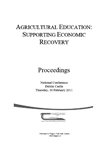
Teagasc welcomes you to our conference “Agricultural Education: Supporting Economic Recovery” which takes place at a time of great uncertainty in our nation and a time when all possible stimuli towards economic recovery need to be exploited.
- Date
- 10 February 2011
- Type
- Event Proceeding
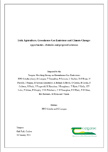
Agriculture contributes to global balances of greenhouse gases (GHGs) through emissions of nitrous oxide and methane and through emissions and/or sequestration of carbon dioxide. In Ireland, GHG emissions from agriculture represent 29.1% of total national GHG emissions. The emission reduction target of 30% by 2020, specified in the Climate Change Response Bill, applies to national emissions. In a hypothetical scenario of proportional burden sharing across sectors, where this overall target translates into a 30% reduction target for the agricultural sector, this will have significant implications for the sustainable development of this important indigenous industry. This submission highlights key international and national issues that must be considered in preparing any GHG control instruments with a specific focus on agriculture.
- Date
- 28 January 2011
- Type
- Submission
